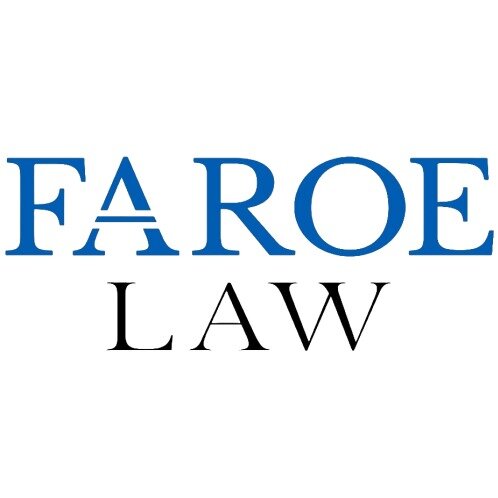Best Climate Change Law Lawyers in Tórshavn
Share your needs with us, get contacted by law firms.
Free. Takes 2 min.
List of the best lawyers in Tórshavn, Faroe Islands
About Climate Change Law in Tórshavn, Faroe Islands
Climate Change Law in Tórshavn, Faroe Islands, is an evolving legal area aiming to mitigate and adapt to the effects of climate change. As an autonomous territory under the Kingdom of Denmark, the Faroe Islands establish many of their own environmental and climate policies, although international agreements and Danish legislation can have some influence. Climate Change Law encompasses local regulations, planning laws, and industry-specific rules that govern greenhouse gas emissions, coastal protections, resource management, and sustainable development throughout Tórshavn and the wider islands. Due to the region's unique environment and reliance on marine resources, climate-related legal measures are particularly important in shaping public policy, protecting the environment, and ensuring economic resilience.
Why You May Need a Lawyer
Engaging with Climate Change Law can be complex given the intersection of local, national, and international regulations. You may need a lawyer if you are:
- A business owner or manager affected by new environmental standards or emission reduction targets
- A member of a fishing or aquaculture company navigating evolving resource regulations
- An individual or organization wanting to challenge or support environmental policies or planning decisions
- Involved in disputes over land, coastal, or marine resource use, especially where climate risks are a factor
- Seeking advice on compliance with environmental reporting, renewable energy projects, or green initiatives
- Concerned about the impact of government actions or industrial expansion on local ecosystems in light of climate change
Local Laws Overview
In Tórshavn and across the Faroe Islands, climate change measures are influenced by several local laws and regulations:
- The Environmental Protection Act sets general standards for environmental quality, pollution control, and sustainable use of resources
- Coastal zone management laws regulate development along shorelines and consider sea-level rise and flood risks
- Fishing and aquaculture legislation addresses sustainable harvest, habitat protection, and ecosystem impacts, all with climate adaptation in mind
- Land use planning regulations require climate risk assessments for major projects and public infrastructure
- Energy sector policies encourage renewable energy investment and reduction of fossil fuel dependency
- Reporting and monitoring requirements ensure compliance with emission targets and international agreements
Frequently Asked Questions
What is Climate Change Law?
Climate Change Law covers regulations and policies that aim to reduce greenhouse gas emissions, protect the environment, and help communities adapt to the effects of climate change, including sea-level rise, extreme weather, and biodiversity loss.
Does Climate Change Law apply to small businesses in Tórshavn?
Yes, various environmental and emission standards can affect businesses of any size. Even small businesses may need to comply with waste management, energy use, and reporting requirements, especially if operating in regulated sectors.
How are laws in the Faroe Islands different from Denmark in terms of climate protection?
While the Faroe Islands are part of the Kingdom of Denmark, they have significant legislative autonomy, especially in climate, energy, and resource matters. Local priorities and conditions often shape the climate laws in Tórshavn more than direct Danish or EU rules.
What legal obligations do fishing companies have regarding climate change?
Fishing and aquaculture companies must operate sustainably, comply with quotas and habitat protections, and adopt practices that adapt to changing marine conditions. Certain rules about gear, catch, and reporting may also be part of climate change adaptation efforts.
Can individuals participate in climate-related public decision making?
Yes, many environmental and planning processes include periods for public consultation. Individuals and groups may submit opinions, attend hearings, or challenge certain administrative decisions through formal channels.
What legal steps can be taken if I believe an industrial project threatens the local environment?
You can object to permits during the public consultation phase, submit evidence to the relevant authority, or seek legal review if procedures were not properly followed. Specialized lawyers can assist in evaluating and pursuing complaints.
Are there incentives for switching to renewable energy in Tórshavn?
The local government has policies and incentives to promote green energy transitions, including grants, subsidies, or tax reductions for investing in renewable energy or improving energy efficiency.
How can Climate Change Law help reduce flood risks in Tórshavn?
Laws require that urban planning and infrastructure development take into account flood risks. This could involve stricter zoning, investment in flood defenses, and adaptation strategies for vulnerable areas.
How are emissions measured and reported?
Regulations require certain industries and public bodies to monitor and report greenhouse gas emissions regularly. Data is often collected by local authorities and can be used to assess progress toward climate targets.
What role do international agreements play in local climate law?
While the Faroe Islands are not directly part of the EU, they follow several international treaties and agreements on climate change through Denmark. These obligations influence local lawmaking, especially in areas like fisheries, energy, and resource management.
Additional Resources
If you are looking for more information or support regarding climate change legal matters in Tórshavn and the Faroe Islands, consider these resources:
- The Faroese Ministry of Environment, Industry and Trade - responsible for environmental and climate policy development
- Umhvørvisstovan (Environment Agency) - provides guidance about pollution, climate initiatives, and environmental legislation
- Føroya Kærustovnur (Complaints Board) - handles disputes over administrative decisions, including environmental matters
- Local Bar Associations - offer directories for environmental law specialists
- Public libraries and local government offices - provide access to climate-adaptation plans and legal texts
Next Steps
If you believe you require legal advice or representation in Climate Change Law in Tórshavn, consider the following steps:
- Document your situation clearly, including any correspondence, contracts, or official notices you have received
- Identify your goals - whether compliance, challenging a decision, or seeking redress
- Contact a local lawyer or legal aid service with experience in environmental or climate law
- Bring all relevant documents and be prepared to outline your case
- Follow your lawyer's advice regarding deadlines, procedural requirements, and engagement with authorities
Lawzana helps you find the best lawyers and law firms in Tórshavn through a curated and pre-screened list of qualified legal professionals. Our platform offers rankings and detailed profiles of attorneys and law firms, allowing you to compare based on practice areas, including Climate Change Law, experience, and client feedback.
Each profile includes a description of the firm's areas of practice, client reviews, team members and partners, year of establishment, spoken languages, office locations, contact information, social media presence, and any published articles or resources. Most firms on our platform speak English and are experienced in both local and international legal matters.
Get a quote from top-rated law firms in Tórshavn, Faroe Islands — quickly, securely, and without unnecessary hassle.
Disclaimer:
The information provided on this page is for general informational purposes only and does not constitute legal advice. While we strive to ensure the accuracy and relevance of the content, legal information may change over time, and interpretations of the law can vary. You should always consult with a qualified legal professional for advice specific to your situation.
We disclaim all liability for actions taken or not taken based on the content of this page. If you believe any information is incorrect or outdated, please contact us, and we will review and update it where appropriate.













